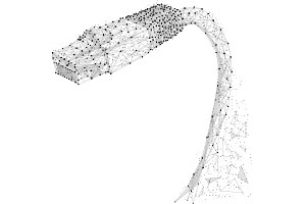In the SkyKick of Time
Emmy and Edwina find there are still significant issues facing all existing and future brand owners. Sky v SkyKick, C-371/18, 29th January 2020

As this case has progressed up the judicial foodchain, brand owners and their advisors had predicted that the CJEU ruling would have a significant impact on our day-to-day practice.
In a ruling handed down three days before the UK left the EU, the Court of Justice of the European Union (CJEU) answered the questions referred as follows:
- A registered trade mark containing terms which are not clear and precise cannot be found to be partially or wholly invalid. The Regulation provides an exhaustive list of grounds for invalidity and there is no existing provision to justify such a finding. Further, the existing ‘public policy’ grounds would not be extended to cover such situations. This was a departure from Advocate General Tanchev’s Opinion issued in October 2019. As a result of this finding, there was no need to consider whether the terms “computer software” lacked sufficient clarity or precision;
- A trade mark application filed with no intention to use the mark for the goods and/or services covered by the registration may constitute bad faith – but only in circumstances where it can be shown that the applicant deliberately intended to monopolise certain goods and services in order to undermine third party interests. Where there was shown to be an absence of intention to use the mark in respect of certain goods and services, the trade mark registration could be found invalid in respect of just those goods and/or services, rather than the whole registration.
Brand owners and their advisors had predicted that the CJEU ruling would have a significant impact on our day-to-day practice. In particular, predictions included that it would:
- Give teeth to the previous CJEU ruling in IP TRANSLATOR and allow third parties to expunge unclear or imprecise specification terms;
- Broaden the scope of bad faith invalidity so that it might apply to wide-ranging circumstances where a lack of commercial rationale for protecting certain terms could be used to remove existing registrations or as a defence against trade mark infringement; and
- Change existing trade mark filing practices, perhaps moving towards a US-style system requiring detailed specifications of goods and services, which would help to de-clutter the registers.
Were any of these predictions correct?
Clarity and precision requirements of IP TRANSLATOR
The CJEU clearly stated that invalidity is not available as a means to enforce the requirements set out in IP TRANSLATOR, because a lack of clarity and precision within the specification is not a ground for invalidity in the relevant legislation. This means that clarity and precision requirements remain a registry issue upon examination of a trade mark application.
The CJEU specifically mentions revocation as the appropriate way for third parties to expunge unclear and imprecise terms from a trade mark registration. This is not particularly helpful, because it means that third parties have to wait until after the expiry of the 5 year grace period before they can take action against a registration which might, in the meantime, be asserted against them.
Until that time, the brand owner can maintain a monopoly over an unclear/unprecise term (such as “computer software”, although the status of that particular term was not addressed by the CJEU).
By directing potential defendants to revoke unclear specifications it seems likely that a significant number of non-use cases will be raised where the meaning of certain specification terms is being questioned in conjunction with their genuine use.
In doing so, it seems that the CJEU has simply put off dealing with the problem with no resolution of the issue of unclear specifications within the five year grace period. A more stringent requirement for specificity of certain terms, such as that in USA, appears to have been rejected by the CJEU.
Therefore, those of us looking to clear and protect new brands will continue to find ourselves dealing with the uncertainty caused by these poorly defined earlier rights.
Even though the CJEU didn’t permit invalidity in these circumstances, there have been interesting repercussions at Registry level which could broaden the potential scope of this ruling.
Perhaps reflecting the view of Arnold J, who had stated in his referral to the CJEU that a trade mark for “computer software” is both “unjustified and contrary to the public interest because it confers on the proprietor a monopoly of immense breadth which cannot be justified by any legitimate commercial interest of the proprietor” both the UK and EU registries have been refusing new applications covering “computer software”.
If the registries adopt a similar approach to identify and refuse a wider range of unclear or imprecise terms, then we are likely to see marks with clearer specifications coming onto the registers, which would deal with the issue early on, rather than placing the onus on third parties to challenge specification terms post-registration.
This is a positive step for all brand owners and practitioners alike and provides scope for the UKIPO to examine specification terms more rigorously than the EUIPO, post-Brexit.
Bad faith
The law surrounding bad faith is largely unchanged. The CJEU avoided controversy by clearly stating that a finding of bad faith for lack of intention to use could be partial and would not necessarily lead to invalidity of the whole registration. However, the ruling highlights the challenges in proving bad faith.
The CJEU describes the conditions when bad faith for absence of intention to use is actionable - where a filing is made with the intention of undermining, in a manner inconsistent with honest practices, the interest of third parties, or of obtaining, without even targeting a specific third party, an exclusive right for purposes other than those falling within the functions of a trade mark.
These are narrow conditions and cannot easily be proven by the invalidity applicant. However, it does seem clear that the sharp practice known as ‘evergreening’ (where a proprietor files a new application every 5 years to circumvent the proof of use requirement or possible revocation) is likely to fall into this category and evidence of evergreening could lead to an inference of bad faith.
The UK requirement to provide a declaration of intention to use upon filing an application could also lead to such an inference but did not give rise to a separate ground of invalidity.
A related question of interest is what will happen if a proprietor seeks to rebut that inference? This issue was raised before the Board of Appeal in MONOPOLY (R1849/201717-2, 22 July 2019), a case where there had been an oral hearing to determine the intention of the proprietor at the time that the re-filings were made.
In EUIPO proceedings, might we see an increased use of oral hearings before the Cancellation Division?
The impact on trade mark filing practices
This CJEU ruling is seen by many as a ‘win’ for brand owners. The ruling won’t require brand owners to carry out extensive reviews of existing portfolios or look to file new trade mark applications to remove imprecise or unclear terms as had been feared. However, the difficulties raised surrounding such specification terms (including “computer software”) should be kept in mind, and avoided by practitioners and brand owners looking to file new applications.
To avoid future invalidity, brand owners might refile more narrowly and in a manner that reflects the genuine use that they would be able to prove, if required later down the line.
However, as the outcome of invalidity proceedings will be limited, and will only remove those goods and services where bad faith is shown in accordance with the CJEU’s criteria, there is little disincentive to significantly change filing practices.
Rather than being a ‘win’ for any brand owners, this anticlimactic ruling does little to resolve the increasingly cluttered register and unclear scope of earlier registered rights, which are significant issues still facing all existing and future brand owners.
For further information about the earlier decisions in Sky v SkyKick, and the questions referred by Arnold J in the High Court to the CJEU, please see our previous case comments.
Blue Sky delayed
And a prolonged period of uncertainty lies ahead, believes Joel Smith. [2018] EWCA Civ 2004, Sky plc & Ors v Skykick, UK Ltd & Anor, Court of Appeal, 6th September 2018.
Is the sky no longer the limit?
Brand owners should consider filing narrower specifications, cautions Désirée Fields. [2018] EWHC 155 (Ch), Sky plc v SkyKick UK Ltd, High Court, 6th February 2018
Limit reached on SkyKick
Emily Gittins outlines why a referral wasn’t required to settle this dispute. [2017] EWHC 1769 (Ch), Sky plc and Others v SkyKick UK Ltd and Another (SKYKICK), High Court, 13th July 2017 .





